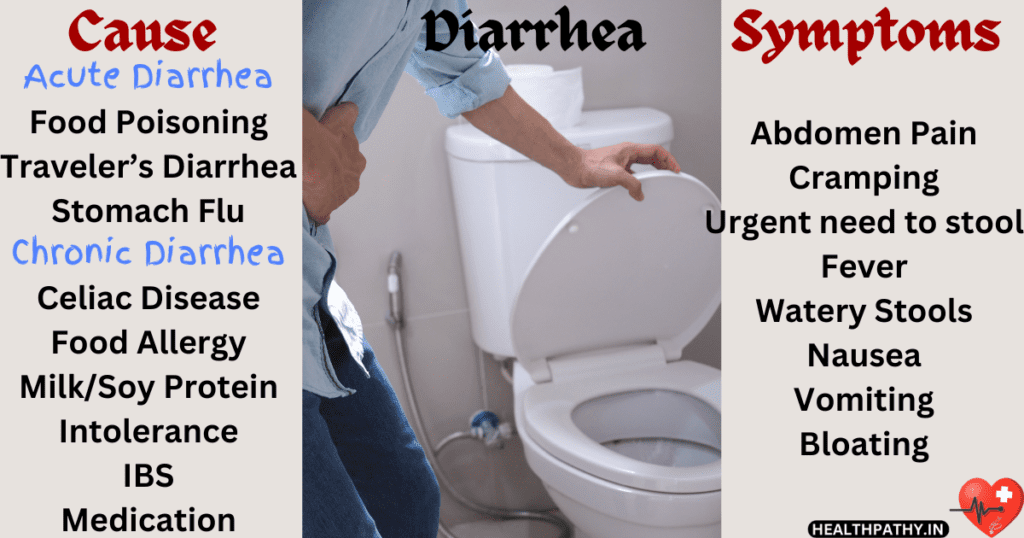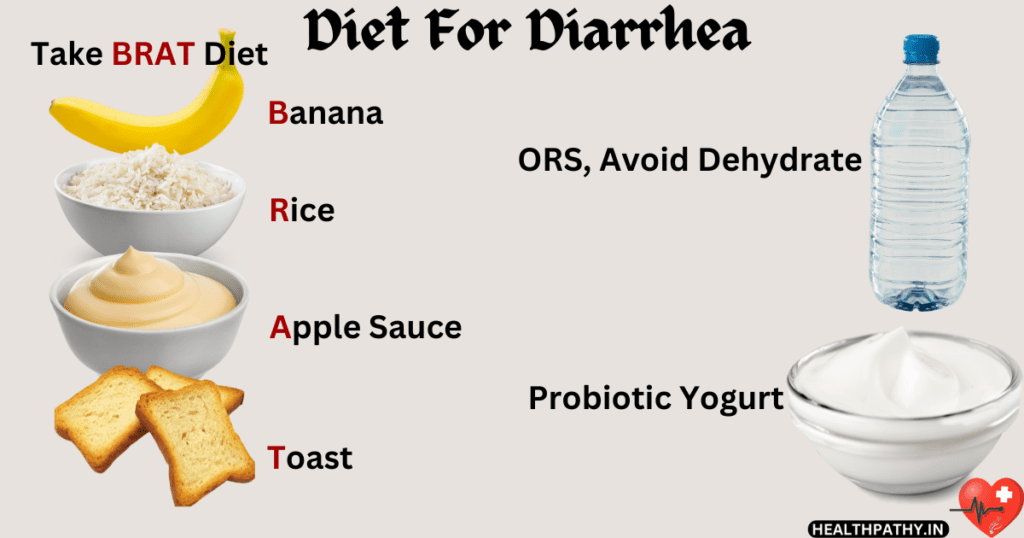Diarrhea, frequently called the “runs,” is a common and uncomfortable gastrointestinal difficulty. In this text, we’re going to discover the bits and bobs of diarrhea, from its definition and causes to diverse sorts, signs and symptoms, homeopathic treatments, easy home treatments, dietary advice, and some do’s and don’ts. Let’s dive into this messy yet crucial topic.
Referring to Diarrhea Cures With Scientifically Proven Homeopathy (diarrhoea) because the “runs” are a colloquial and casual manner of describing the situation. When people use the time period “the runs,” they’re commonly referring to the frequent and watery bowel movements that are functions of diarrhea.


- Diarrhea Cures With Scientifically Proven Homeopathy
- Diarrhea Defination
- Causes
- Types Of Diarrhea
- Sign And Symptoms
- Effective Homeopathic Cure
- Trusted Mother Tinctures Cure
- Other Safe Treatment Options
- Diet Tips For Prevention And Maintenance
- The Power Of Do's:
- Mastering The Don'ts:
- Conclusion:
- FAQ
- Must Read:
- Must WATCH:
Diarrhea Defination
Diarrhea is a digestive condition characterized by the aid of loose or watery stools going on more regularly than usual, three or more instances a day. It’s frequently accompanied by a pressing desire to visit the restroom, which may cause dehydration if left unmanaged. Diarrhea can have diverse reasons, together with infections, food poisoning, dietary choices, medicines, and underlying scientific situations
Causes
Diarrhea will have numerous causes, including:
- Infections: Bacterial, viral, or parasitic infections can irritate the digestive tract.
- Food Poisoning: Consuming infected food or water can trigger diarrhea.
- Dietary Choices: Overindulgence in certain foods, intolerance to particular elements (e.g., lactose), or immoderate caffeine consumption can result in diarrhea.
- Medications: Some medicinal drugs, mainly antibiotics, can disrupt the gut and bring about diarrhea.
Types Of Diarrhea
There are several types of diarrhea:
- Acute Diarrhea: Sudden onset and usually short-lived, often as a result of infections or nutritional factors.
- Chronic Diarrhea: Persists for a prolonged duration, commonly indicating an underlying clinical circumstance.
- Traveler’s Diarrhea: Common among travelers due to exposure to new bacteria or pathogens.
- Inflammatory Diarrhea: Often related to conditions like Crohn’s disease or ulcerative colitis.


Sign And Symptoms
The symptoms and signs of diarrhea include: Diarrhea is characterized by frequent, loose, and watery bowel movements. The symptoms of diarrhea can vary depending on its cause and severity, but common symptoms include:
- Frequent Bowel Movements: Loose bowels regularly include passing stools more habitually than expected, frequently at least three times each day.
- Watery Stools: Stools are free, watery, and might not have a framed shape.
- Stomach Spasms: Many individuals with loose bowels experience stomach issues or uneasiness.
- Urgency: There’s in many cases an unexpected and compelling impulse to have a defecation, which might be hard to control.
- Bloating: A few people might feel swollen or gassy alongside the runs.
- Nausea: Looseness of the bowels can be joined by sensations of sickness or an agitated stomach.
- Fever: In instances of irresistible looseness of the bowels, for example, from bacterial or viral contamination, fever might be available.
- Blood in Stools: At times, especially assuming the looseness of the bowels is serious or ongoing, there might be blood in the stools, which requires prompt clinical consideration.
- Dehydration: Drawn out or extreme the runs can prompt parchedness. Side effects of lack of hydration include dry mouth, over-the-top thirst, dull pee, weakness, and discombobulation.
It’s vital to take note that diarrhea can be brought about by different variables, including contaminations, food contamination, medicine aftereffects, dietary decisions, and basic ailments. Acute diarrhea, which endures a brief time frame and frequently settles all alone, is normal and can be dealt with hydration and dietary changes. In any case, persistent or severe diarrhea ought to be assessed by a medical care supplier, particularly in the event that it is joined by other side effects, to decide the basic reason and fitting therapy.
Effective Homeopathic Cure
Homeopathy offers several remedies for diarrhea, including:
| Remedy | Indications |
| Arsenicum Album | Helpful for food poisoning diarrhea with anxiety, restlessness, and burning sensations. |
| Podophyllum | It is indicated for profuse, painless, gushing diarrhea, frequently with rumbling within the abdomen. |
| Aloe Socotrina | Useful for diarrhea with a sudden, unexpected urge and a feeling of lack of confidence. |
| China Officinalis | Considered for diarrhea with weakness, dehydration, and sensitivity to touch. China may additionally assist in cases of diarrhea due to exhaustion. |
| Veratrum Album | Beneficial for violent diarrhea with cold sweat and exhaustion. |
Trusted Mother Tinctures Cure
| Remedy | Indications |
| Aegle Marmelos (Bael) | It is useful for chronic diarrhea with mucus, abdominal pain, and a sense of incompleteness after passing stool. It can also help with dysentery. |
| Holarrhena Antidysenterica (Kurchi) | It is useful for diarrhea with excessive thirst, flatulence, and a feeling of incompleteness after bowel movements. It may also be considered for diarrhea accompanied by acidity. |
| Ipecacuanha (Ipecac) | It is indicated for profuse, watery diarrhea with nausea and vomiting. There may be a constant urge to bypass stool, and the person may additionally appear pale and weak. |
| Terminalia Chebula (Haritaki) | It is useful for diarrhea with excessive thirst, flatulence, and a feeling of incompleteness after bowel movements. It may also be considered for diarrhea accompanied by acidity. |
| Quercus Robur | It is indicated for diarrhea with weakness. |
It’s vital to observe that the selection of a homeopathic mother tincture has to be primarily based on the individual’s precise signs and usual health. Homeopathic treatments are chosen based totally on a holistic evaluation of the person, which includes their mental and emotional state as well as their bodily signs and symptoms. It’s recommended to consult a qualified homeopathic practitioner for a customized evaluation and advice on the most suitable mother tincture for your situation.
Other Safe Treatment Options
- Stay Hydrated: Drink masses of fluids, consisting of clean soups, natural teas, and oral rehydration solutions.
- BRAT Diet: Consume bananas, rice, applesauce, and toast to help firm up stools.
- Probiotics: Consider taking probiotic dietary supplements or consuming yogurt with live cultures to repair intestine balance.


Diet Tips For Prevention And Maintenance
Diet plays a vital role in managing diarrhea because it helps in easing signs and symptoms, stopping dehydration, and promoting restoration. Here are a few dietary guidelines to comply with:
Foods to Include:
- Clear Liquids: Begin with clear liquids like clean broth, undeniable water, herbal teas (e.g., chamomile), and clear fruit juices (diluted with water). These assist in stopping dehydration and are smooth in the stomach.
- Oral Rehydration Solution (ORS): ORS is a critical element of diarrhea/dysentery control. It enables the updating of misplaced fluids and electrolytes. You should purchase ORS sachets at a pharmacy or put together a self-made solution by mixing smooth water with sugar and salt in the right proportions.
- Bananas: Bananas are mild on the stomach and provide critical nutrients like potassium. They can help clean up stools and reduce diarrhea.
- Boiled Potatoes: Plain, boiled potatoes are easy to digest and provide a terrific source of carbohydrates for strength.
- Rice: Plain, boiled rice can be soothing to the gut and is a superb source of energy and stamina.
- Yogurt: Plain yogurt with stay cultures (probiotics) can help repair the balance of beneficial bacteria inside the gut. It’s a good supply of protein and calcium.
Foods to Avoid:
- Spicy and Greasy Foods: These can worsen the stomach and worsen diarrhea.
- Dairy Products: Avoid dairy merchandise like milk, cheese, and butter as they can be difficult to digest and might exacerbate signs and symptoms.
- Caffeinated and Carbonated Beverages: Coffee, tea, and carbonated beverages can aggravate the stomach lining. Avoid those until your signs and symptoms improve.
- Fatty Foods: Foods high in fats can be hard to digest and may worsen diarrhea.
General Tips:
- Eat small, frequent meals in preference to large ones. This can reduce the weight in your digestive machine.
- Stay nicely-hydrated. Sip clear fluids, including ORS, throughout the day to save you from dehydration.
- Listen to your body. If a specific meal triggers pain, avoid it till your symptoms subside.
Remember If your signs and symptoms are intense, persist for more than a few days, or when you have a high fever, it is crucial to consult a healthcare company for proper evaluation and remedy. In a few cases, they will advocate precise dietary changes primarily based on the severity and kind of dysentery.
From Do’s to Don’ts: Transforming Your Life for the Better
The Power Of Do’s:
- Stay Hydrated: Drink lots of clear fluids, which include water, natural teas, clean broths, and oral rehydration solution (ORS), to save you from dehydration due to diarrhea.
- Eat Bland Foods: Opt for bland, without difficulty digestible ingredients like boiled rice, plain boiled potatoes, bananas, and plain yogurt with stay cultures (probiotics).
- Practice Good Hygiene: Wash your hands very well with soap and clean water after using the restroom and earlier than handling meals. This facilitates the prevention of the unfolding of infection.
- Rest: Rest plays a important role in disease restoration as it allows the body to repair, heal, and regain strength. During periods of rest, the body can allocate energy resources towards healing processes, such as repairing damaged tissues, replenishing energy stores, and boosting the immune system’s function.
- Consult a Healthcare Provider: If your signs and symptoms are severe, persist for various days, or when you have high fever, are searching for medical interest right away.
Mastering The Don’ts:
- Alcohol and Smoking: Both alcohol and smoking can aggravate the digestive tract. It’s quality to avoid them whilst you’re getting better.
- Over-the-Counter Anti-Diarrheal Medications: In some cases, the usage of over-the-counter anti-diarrheal medicines won’t be really helpful, mainly if the diarrhea is caused by a bacterial or parasitic infection. Consult a healthcare company earlier than the use of such medicinal drugs.
- Avoid Self-Medication: Don’t self-prescribe antibiotics or different medicinal drugs. The suitable treatment relies upon the underlying motive of diarrhea, which ought to be determined by way of a healthcare issuer.
- Don’t Ignore Severe Symptoms: If you revel in severe symptoms such as high fever, blood in stools, intense abdominal pain, or signs of dehydration (e.g. dry mouth, reduced urination, dizziness), seek on-the-spot medical interest.
Remember that these pointers are widespread in nature. Individual hints might also range primarily based on the severity and form of dysentery and should be discussed with a healthcare provider for personalized care and remedy.
Conclusion:
While diarrhea can be distressing, it is often possible with the proper approach. Homeopathy gives precious treatments, and easy nutritional adjustments can help ease signs. Remember to live hydrated and seek advice from a healthcare company while wanted.
FAQ
Must Read:
Diabetes Mellitus Cures With Scientifically Proven Homeopathy
Asthma Cures With Scientifically Proven Homeopathy
Must WATCH:
Homeopathy: Placebo or Real Medicine? | Homeopathy Is Not A Placebo | Is Homeopathy A Scam?
Saturday 12 April 2025 3:01:35:AM
- Acromegaly Cures With Scientifically Proven Homeopathy - 8 February 2024
- Acidity Cures With Scientifically Proven Homeopathy - 1 February 2024
- Appendicitis Cures With Scientifically Proven Homeopathy - 27 January 2024





